Here we are, all the family arrived for a one-month trip in China. In the public transport that takes us to Liuliqiao bus station, Chinese people are puzzled to look at a band of heavy-equipped foreigners traveling in this kind of transport. The bus station is brand new with an huge waiting hall. They sell the tickets at the first floor and the ground floor is worthy of an airport. The passengers comfortably wait in front of the boarding gate.
Towards Datong, in the Shanxi province. A 3-million small Chinese town. When we get off the bus, taxi drivers bustle about. One of them drops us off in front of a hostel and offers us to take off our rucksacks in the room and to rush at the Yungang caves, registered in the World Heritage list, 20km from Datong. We're OK for the trip.
In the distance, we contemplate a short cliff, slightly eroded by cavities. In fact, these orifices are grottoes where each square centimeter was carved in. Tourists can visit about thirty caves which contains the bewildering number of 50000 Buddhas.
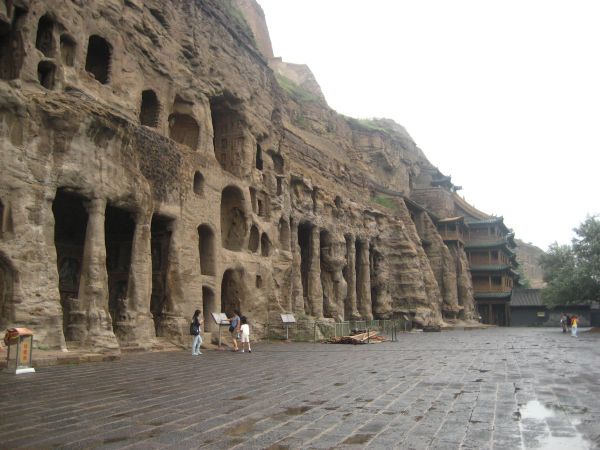
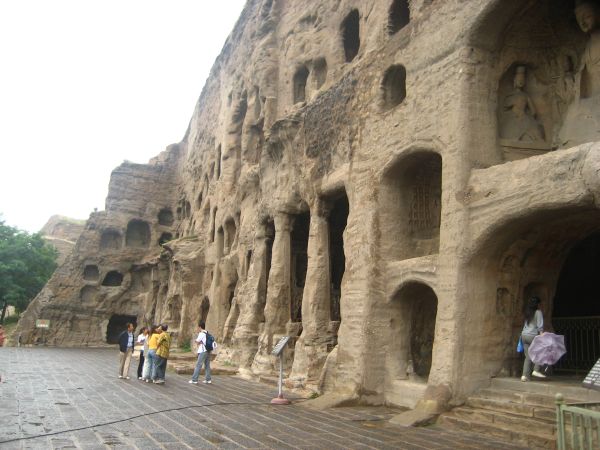
From a few centimeters to several meters, the potbellied character is carved in all its forms. The sculptors' overzealousness dedicated at the generosity of Buddha culminates in the caves n°5 and n°6.
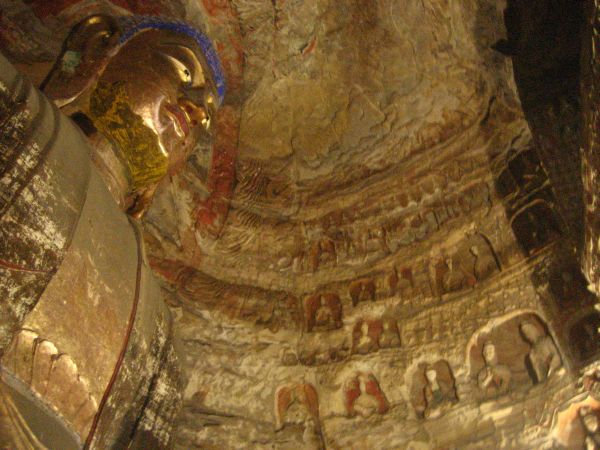
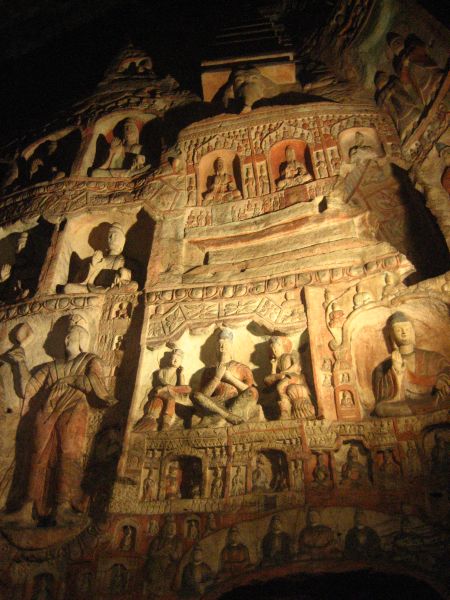

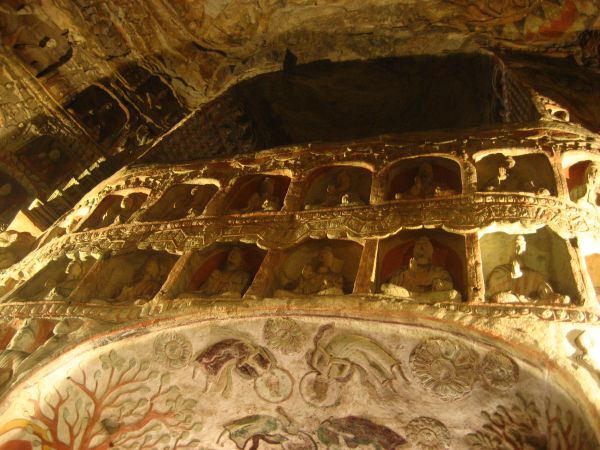
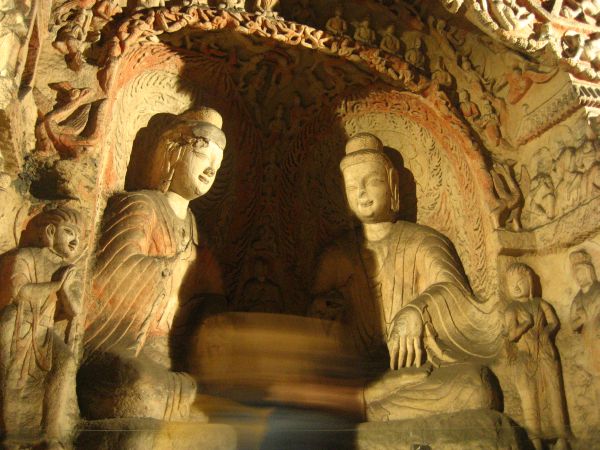
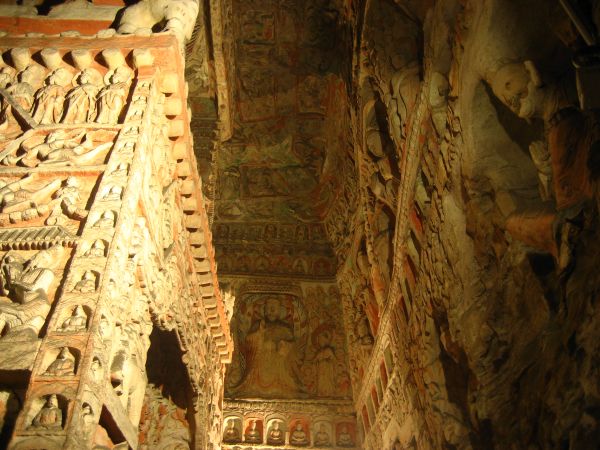
The look clings to the details, to colorful reliefs, smiles in front of the ingenuity used bey the sculptors to fill the spaces. In each cave, a patchwork of icon-like Buddhas carpets all the infractuosities, encircling an altar of stone or a main Buddha, proportionally sized to the cave dimensions.
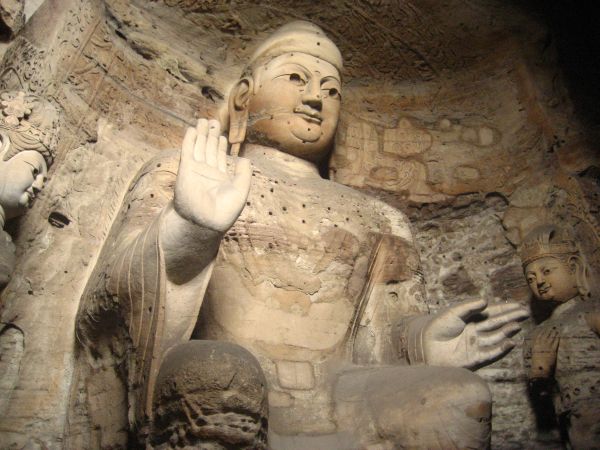
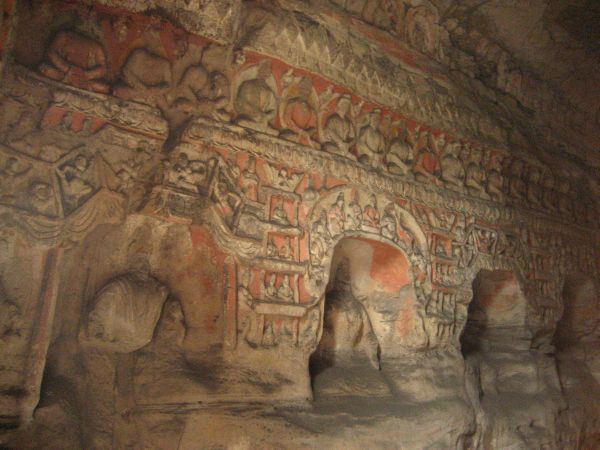
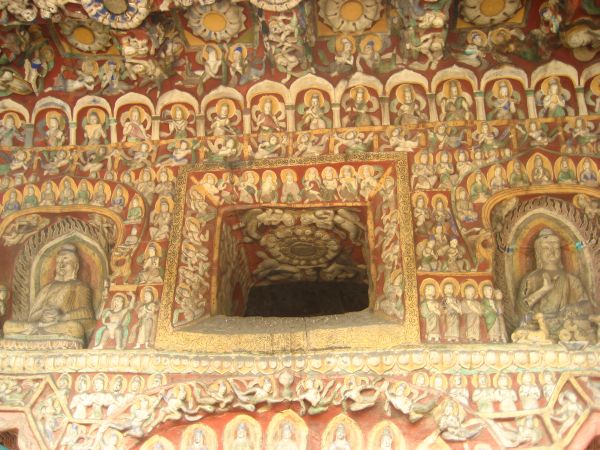
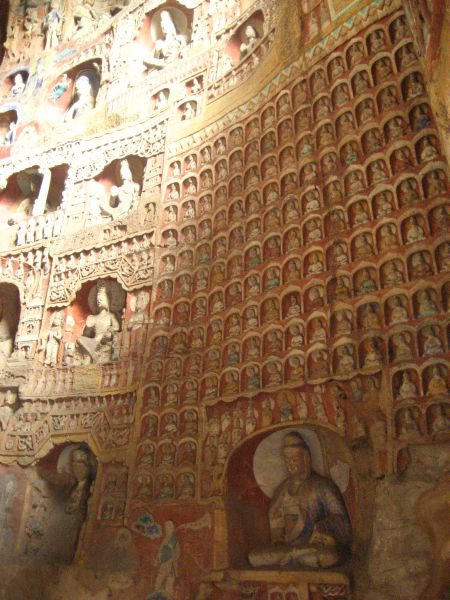
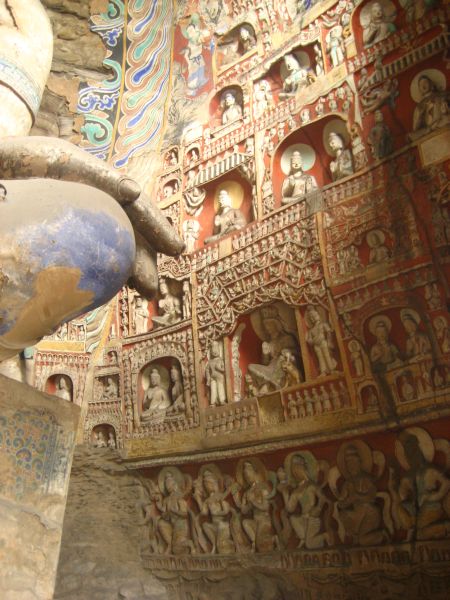

Keyword - religious fervour -
Monday 30 July 2007
The 50000 buddhas of the Yungang caves
By dorian on Monday 30 July 2007, 00:47 - RTW-China
page 3 of 3 - next entries »




